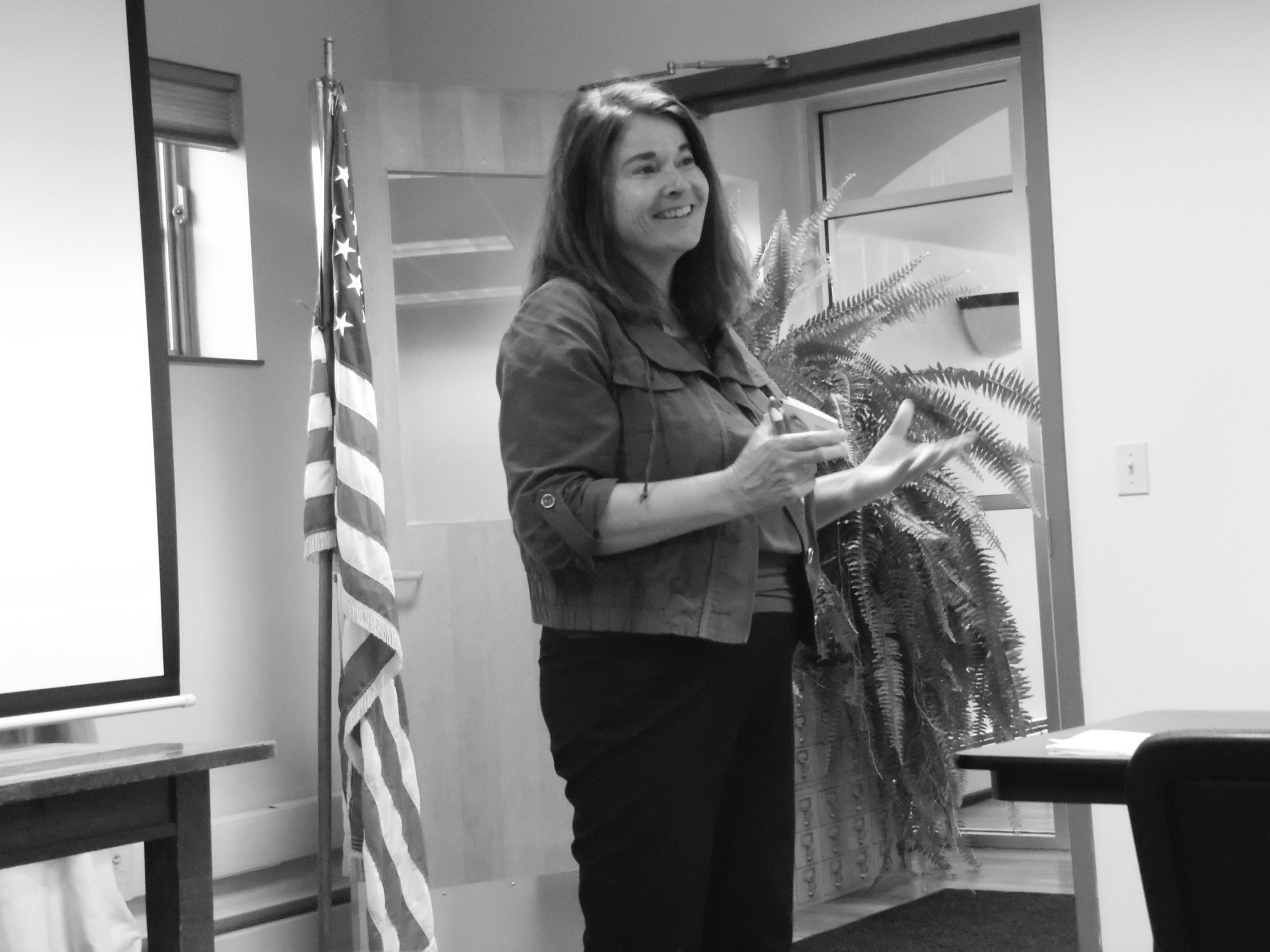Democrats talk about advocating for the climate

MONTE VISTA-The Rio Grande County Democrats met last Monday evening to discuss the effects of climate change and methods for advocating for the environment in the face of the current presidential administration’s cuts to research and protections.
Mary Hoffman, executive director of Community Partnerships at Adams State University attended the Climate Reality Leadership Corps training. The training is conducted by The Climate Reality Project which was founded in 2006 by former Vice President Al Gore and is funded from the proceeds of his film An Inconvenient Truth. The project’s mission “is to catalyze a global solution to the climate crisis by making urgent action a necessity across every level of society.”
Hoffman became involved in the corps through her work with ASU’s Community Partnerships. Two of the meeting’s other attendees, Tom and Suzy (last name unavailable at press time), had worked with Hoffman on split estate issues in Rio Grande County. Property owners near San Francisco Creek were dealing with potential fracking in the area and were advocating against it. They started a YouTube channel to tell the stories of people who sold their mineral rights and contacted Josh Fox, director of the popular anti-fracking documentaries Gasland and Gasland II. Hoffman also attempted to contact Gore about the local fracking issues and was given information about the Corps training. Hoffman attended the training in Chicago and as a member of the leadership corps now has to put on 10 acts of leadership in climate advocacy a year and report them back to the Climate Reality Project.
Hoffman explained that a goal that everyone who wants to advocate for the climate should keep in mind is to “reach out to the other side” and understand why they believe what they do and meet them where they are with how climate change will impact their lives. “There are four mindsets when it comes to climate change,” Hoffman explained. The first is not to believe in it at all or believe it is a conspiracy. As an example, Hoffman referred to the President’s famous tweet about climate change being a hoax made up by the Chinese government. The second mindset is to believe that climate change is real but not to believe it is manmade or impacted/accelerated by humans. The third mindset, which Hoffman stated that many Americans fall into, is to believe that climate change is real but to feel like it is too big of an issue to impact as an individual. Many of the meeting’s attendees felt that they belonged to this category, discussing throughout the meeting the question of whether the Earth has “surpassed the tipping point” of recovery. The final mindset is to believe in climate change and wanting to or actively doing something about it.
Hoffman encouraged local advocates who fall into the fourth mindset and want to make a positive change to consider attending the Leadership Corps and organize screenings of An Inconvenient Truth and An Inconvenient Sequel, which will debut this August. Hoffman noted how Gore felt he “wasn’t the right face” to tell the climate story and is thus encouraging new leaders to pick up his lead and become advocates in their communities and beyond. Hoffman also encouraged attendees to keep writing letters to leaders in Congress encouraging them to advocate for the environment and most importantly, she again emphasized that “we need to reach out to the other side” instead of assuming that Republicans don’t believe in climate change or don’t realize how it affects them. To drive this point home, she read a quote from Republican Senator and former Presidential Candidate John McCain in a 2007 Boston Globe op-ed he coauthored with Independent Senator Joe Lieberman, “There is now a broad consensus in this country, and indeed in the world, that global warming is happening, that it is a serious problem and that humans are causing it. The recent report by the Intergovernmental Panel on Climate Change concluded there is a greater than 90 percent chance that greenhouse gases released by human activities like burning oil in cars and coal in power plants are causing most of the observed global warming. This report puts the final nail in denial’s coffin about the problem of global warming.”
Suzy encouraged attendees to look to the example of indigenous movements for advocacy inspiration, citing the recent efforts against the Dakota Access and Keystone Pipelines, especially the protest led by the Standing Rock Sioux tribe in North Dakota. “We should support their movements and strategies,” she stated because they are inclusive to youth and women and use effective methods of non-violence. Hoffman also noted the growing permaculture movements throughout the state and northern New Mexico and the expanding Willing Workers on Organic Farms (WWOOF) organizations, where people live and work on farms to gain experience in sustainable living practices, stating that activism, learning and progress can be reached in several different ways.
The meeting attendees looked through research showing that although it may take hundreds of years, the possibility still exists that the Earth may be able to either stabilize temperatures instead of the steady increase we are currently experiencing or recover from the current damage done by manmade climate change. However, the fact that these effects take so long to see are the same reasons the issue is difficult to advocate for and make people understand. Hoffman encouraged advocates to “find a way to have a real dialogue with talking and actual listening” and “put yourself in the shoes of those opposed” to the reality of climate change.



